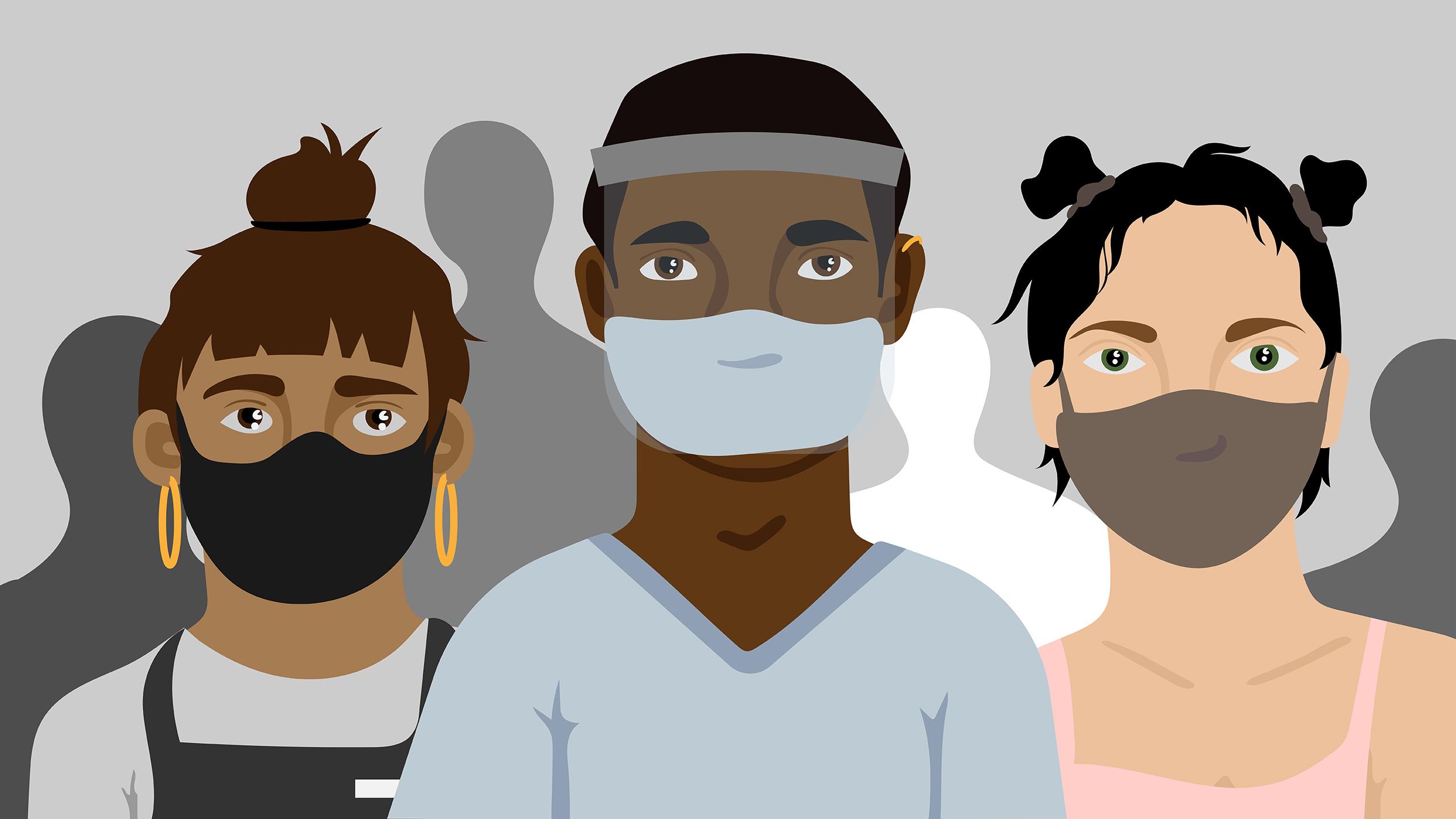By Sarah Tomlinson
Essential student workers are seeing attitudes towards COVID-19 relax, despite the ongoing work and extra diligence required to meet health and safety guidelines.
Jamie* is a fourth-year nursing student at Ryerson who has worked in a retirement home since August 2018. Although she was originally a personal support worker, she switched to working as the home’s receptionist at the start of the pandemic in an effort to keep a safe distance from residents.
Her workplace prohibited residents from socializing with each other or visiting with their families at the start of May and consequently had no outbreaks.
On May 25, 840 outbreaks had been reported in long-term care homes across Canada, accounting for over 80 per cent of the country’s COVID-19 cases.
Many of the implemented safety measures added extra work for the employees, such as separating residents who broke social distancing rules, she said.
“It’s challenging to explain to residents who have cognitive impairments, such as Alzheimer’s or dementia, why they can’t be near other people,” she said. “It’s almost like adding another job to our job.”
Tiesa Gutauskas, a fifth-year creative industries student, has been working at Sobeys for almost six years.
“We have people who walk around with their mask in their hands, or wear it below their nose or on their chin,” she said. “We can’t really yell at them, because they’re our customers. As a cashier, it’s not my job to prove the pandemic is happening to people.”
The burnout doesn’t go away after clocking out, said Gutauskas. Managing school on top of work is another challenge. “Even without the pandemic, the retail environment is physically exhausting,” she said. “If I work a morning, the last thing I want to do is school work, especially when it feels so daunting now that it’s all online.”
“People are just acting how they were before the pandemic began”
“When you’re a remote student, there’s a high level of isolation. You just have to figure it out on your own terms.”
Nistha Fernando-Majewski, a second-year biomedical science student and pharmacy assistant, said she feels her coursework has gotten heavier this term, because professors “are thinking, ‘Oh, they’re all at home they have all the time in the world to just do work,’” she said. “It’s definitely stressful.”
Work has only become more stressful desire to get back to the status quo has let some folks get too comfortable.
“The only difference is they wear a mask and they sanitize their hands, and they’re a bit more careful in terms of how close they are to other customers within the store,” said Fernando-Majewski. “But I can tell that that fear is not there anymore…people are just acting how they were before the pandemic began.”
Employers as guilty as customers
Jamie said that even some of her bosses don’t always follow protocol. According to her, families would bring gifts for relatives in lieu of being able to visit and insist that they be delivered immediately.
“Some family members would say ‘Take them up now!’ but we can’t because of infection protocol,” said Jamie. Nonetheless, her boss would urge her to take the packages to the residents without disinfecting them. “I see a lot more pleasing clients than following actual protocols,” she said.
Her boss would also prevent her from disinfecting expensive marble tables for fear of corroding the surface and restrict the amount of personal protective equipment used by employees each shift.
“Our boss said that we get two masks per shift, but for me, it’s a struggle even getting one mask. They tell us ‘Why are you wasting the sanitizer?’” said Jamie. “They say they care but their actions sometimes do show differently.”
Overtime pay promised by the Ontario government for support workers also came late.
In March, The Eyeopener reported that grocers like Sobeys and Loblaws were providing employees Hero Pay: an extra $50 per week as well as an additional $2 per hour after 20 hours worked in a week. However, as of June 12, the Globe and Mail found that several chains ended the program.
Possibility of a second wave
Despite Jamie and her colleagues getting COVID tested every two weeks, she said visitors are free to enter untested. There’s still a lot to worry about with the possibility of a second wave, she added.
On Sept. 3, Toronto reported 68 active cases according to their COVID-19 case tracking website. On Sept. 20, 1,152 cases were active.
“A lot of managers already have a heightened anxiety level because we’re trying to order things for the second wave, like hand sanitizer, but it’s already backlogged. So my boss is panicking because those things are necessities,” said Jamie.
Likewise, Gutauskas said some customers are already preparing for the second wave.
“I have one customer who comes in and buys a package of paper towel every week and she says ‘I’m just getting it just in case,’” she said. “So it’s kind of that predictive, preventative approach where they’re trying to stock up before everything goes crazy again.”
*Last name has been omitted to protect source’s security and employment.













Leave a Reply